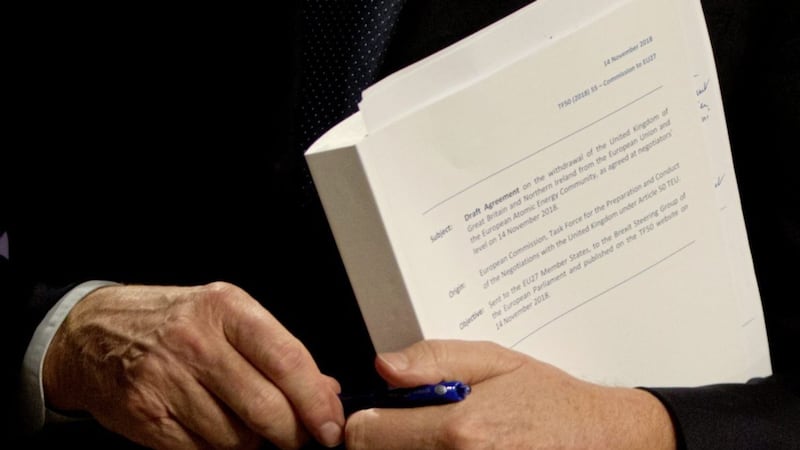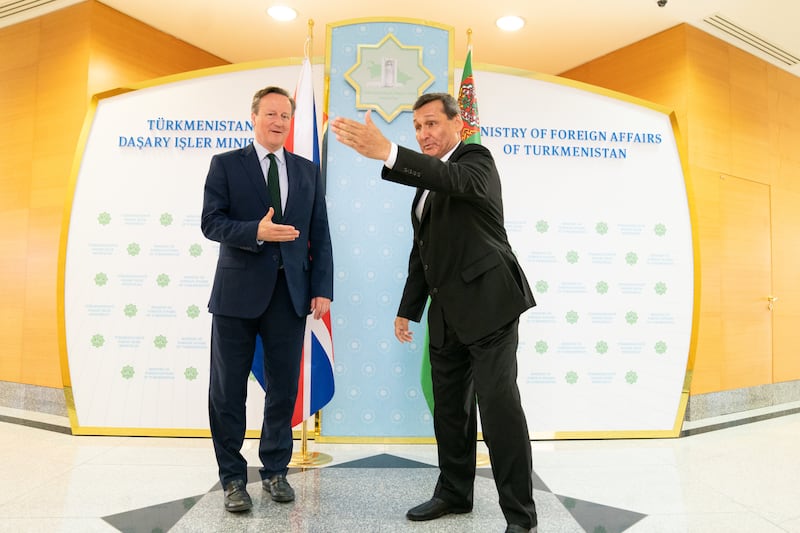AFTER political turbulence that has seen a number of cabinet resignations and a close examination of the Prime Minister in Parliament, we now have the draft terms of the withdrawal agreement between the UK and the EU.
A substantial amount of political and academic bandwidth in these negotiations has focussed on the question of the Northern Ireland–Republic of Ireland border. Protecting the free flow of people, goods and services has been front and centre in an economically fragile region where symbolism carries significant political weight.
The result of months of intense negotiations on the border question is the amended protocol on Ireland/Northern Ireland contained within the withdrawal agreement. This is, necessarily, a dense and legally complex protocol that sets out the diverging paths available upon the conclusion of the next stage of the overall negotiations relating to the future relationship between the UK and the EU. There are important agreements about future customs relationships and standards checks that will have a significant impact on cross-border business.
The backstop is the term used for the agreement between UK and EU negotiators outlining that in the absence of a satisfactory conclusion to the EU-UK future relationship negotiations, specific actions will be taken to secure the fluidity of the Northern Ireland–Republic of Ireland border.
This has been the subject of intense political scrutiny and debate. Some have suggested that introducing a regime which would allow Northern Ireland to diverge from GB customs and standards checks amounts to an assault on the integrity of the United Kingdom. Others have demanded that a guarantee is necessary to protect economic, social and political interests between Northern Ireland and Republic of Ireland in the event of a breakdown in talks.
The draft withdrawal agreement will present the UK government with a choice as the close of the next stage of negotiations approaches. If an agreement on the future EU-UK relationship seems that it will not be possible by 31 December 2020, the UK may request an extension of the transition period for further negotiation. In the absence of such a request, however, the backstop protocol will be invoked.
This could result in a single UK-EU customs territory. This negates the need for customs checks or further divergence on tariffs. Quotas or rules of origin checks between NI and ROI, or between NI and GB by enveloping the entire UK.
It could result in Northern Ireland alignment on standards checks. In order to ensure that goods crossing the land border comply with the rules of the single market, Northern Ireland will align with EU standards regulations (goods, sanitary and phytosanitary, VAT, state aid and agriculture production/marketing). This will mean additional checks for some goods entering Northern Ireland from the GB market although this will be undertaken on a risk-identified basis.
Upon the activation of the backstop, a joint committee at a ministerial level will consider a request from either party to bring the arrangement to a conclusion if they believe that a suitable alternative accommodation has been reached. Critically, this will only be granted on the basis of mutual consent.
The publication of the draft withdrawal agreement is positive news for business in Northern Ireland. Uncertainty was damaging confidence in local markets and these proposals should help alleviate that to some extent.
This is not, however, an ideal situation. Market uncertainty has been replaced with political speculation, which will bring its own challenges in the middle of a complex negotiation.
While the terms of the agreement seek to mitigate any changes as far as possible on the basis of risk identification, additional checks will be required on goods entering Northern Ireland from the GB market. Some of these checks can take place in market at the point of destination, but an additional burden will be placed on some businesses.
The agreement will, however, allow Northern Ireland’s exporters to benefit from parallel marketability of goods, using a UK label in GB markets and a UK(NI) label in EU markets; it removes the spectre of heavy customs and standards checks at the NI-ROI border; and it provides much needed certainty for local businesses.
It must be emphasised that the withdrawal agreement is not a silver bullet. There are many issues left to be dealt with in the future relationship negotiations, and the announcement will not stop businesses continuing with contingency plans for a worst-case scenario. However, it is a welcome development and provides breathing space for all parties.
:: Susan Mason is the acting regional director of RICS in Northern Ireland. RICS is the principal independent body representing professionals employed in the land, property and construction sectors. In Northern Ireland, the organisation represents over 3,000 cross-sectoral members comprising of chartered and associate surveyors, trainees and students.








